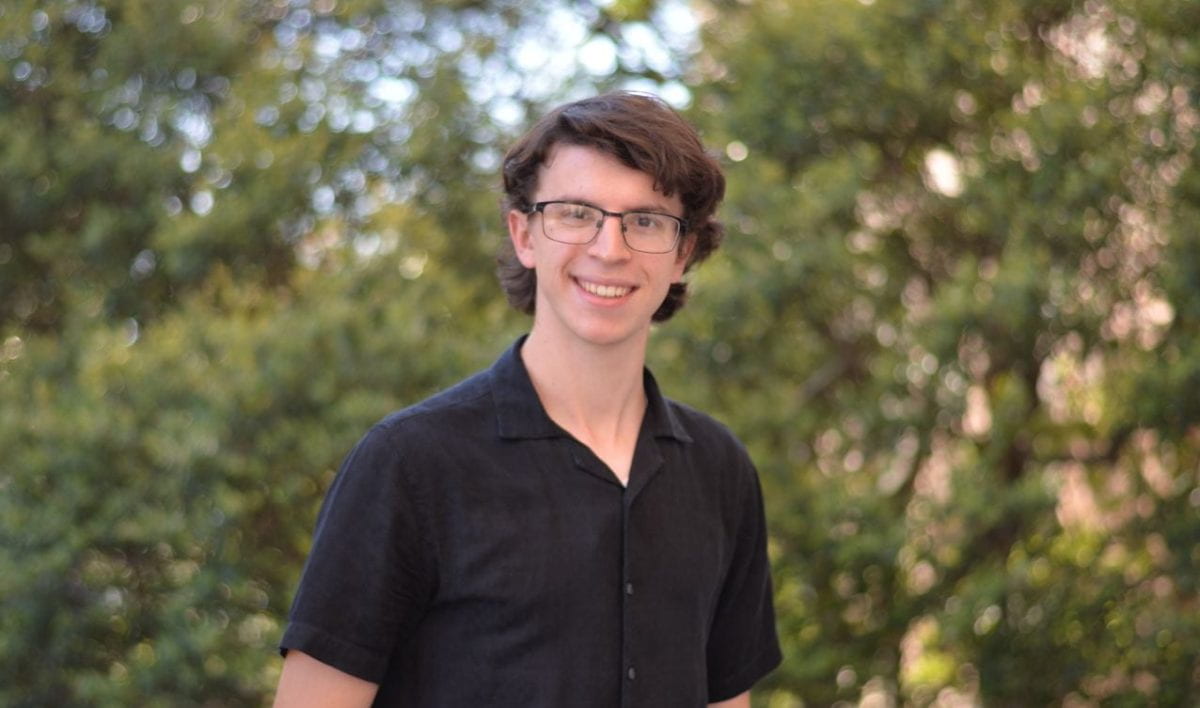Joshua Ange, Class Of ’25, is a 2022-23 Summer Research Fellow.
Tell me about yourself!
Sure! My name is Joshua Ange, I’m a Sophomore (Class of 2025) studying Physics and English with minors in mathematics and computer science. In regards to fun facts, I was born in New York, really enjoy theatre (I did it a lot in high school, but haven’t been able to do much since), and like rock climbing.
What did you do during your summer research? Who did you work with and overall, how was it?
During my summer research, I worked with Dr. Robert Calkins. I was continuing research I began in the Spring semester in Professor Jodi Cooley’s lab as part of the SuperCDMS SNOLAB collaboration, which mainly deals with dark matter detectors.
Dark matter detectors are placed deep underground to be isolated from background and other noise. But underground, there is radon present in the air that can cause “plate-out,” essentially meaning it decays into lead and accumulates on nearby surfaces, which leads to the production of alpha particles. And these alpha particles can act a bit like “false positives” for dark matter detectors. So my research concerned the readings of these alpha particles.
Essentially, an SMU grad student went down and measured pieces of polyethylene plastic (which are used as shielding within the detectors) and found that the rate of accumulation of lead wildly varied between pieces, even if they were in the same location. It was hypothesized that this may be due to the charge embedded within the plastic, so that was the phenomenon we were attempting to find and quantify. Overall, we found some pretty solid relationships and were able to (somewhat) simulate the effects, but there’s still more analysis needed in order to fully be able to correct for the embedded charge.
What was your favorite part during your research? What was the most memorable part for you?
I think one of my favorite parts of the research was just that it was a collaborative, real process. Unlike in class, where you’re learning from the professor trying to find the right (pre-determined) answer, I really loved the collaborative and “working-together” problem-solving aspect of the work we were doing. As we came towards the end of the research and began assembling a paper and presentations, it was very nice to be able to show results and findings that were “ours,” if that makes sense. And then a highlight, as well, was being able to present at the Fall 2022 Texas Section American Physical Society conference. I loved meeting other students and being able to share the work I was doing with people outside of SMU!
What would you say to anyone wanting to start getting involved with research? How would you advise them to go about it?
Honestly, the biggest thing I would say is to just go for it! I think a lot of the time, people are a bit afraid of starting research because they don’t know where to start / how to begin, but I don’t think that gets resolved until you actually start. For me, I just got involved by emailing my professor, learning about the project, and getting started from there. It was of course a bit scary to enter a new environment like this, but also so exciting to be in the research world!
Joshua was lead author on the article “Characterization of XIA UltraLo-1800 response to measuring charged samples,” which was recently published in Journal of Instrumentation 18 P01027. Congrats to Joshua, Dr. Robert Calkins, and Andrew Posada ’17!


